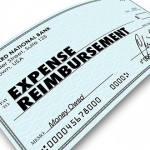The importance of accountable expense reimbursement plans

Most companies cover their employees’ business expenses by reimbursing them for their actual expenses or by paying a travel or mileage allowance. Such arrangements are subject to strict tax rules concerning what qualifies as a legitimate reimbursement arrangement and what is treated (at least for tax purposes) as additional compensation to the employee.
According to the tax rules, the key distinction between a true expense reimbursement and disguised compensation is whether the employer’s payments are made in accordance with what the IRS calls an accountable plan. (Such a plan basically requires employees to substantiate all reimbursed expenses and return any advances in excess of expenses incurred.)
If an employer has an accountable plan in place, expense reimbursements and allowances to employees, who properly comply with the terms of the plan, are deductible by the company (subject to the 50% limit for most meals and entertainment expenses) and nontaxable to the employees.
If a company maintains a nonaccountable plan or an employee fails to comply with the company’s accountable plan, expense reimbursements and allowances are still deductible by the company. However, they are taxable to the employee as compensation. Thus, such amounts are included on the employee’s Form W-2 and subject to income tax withholding. In addition, both the employer and employee are subject to employment taxes on such payments. Although the employee is allowed an offsetting deduction for the expenses reported on his or her Form W-2, the deduction is claimed as a miscellaneous itemized deduction and thus normally provides little or no tax benefit.
Because the tax ramifications of a nonaccountable expense reimbursement plan are so unfavorable for employees and are potentially unfavorable for the employer, companies generally should use an accountable plan for employee expense reimbursements.
If you would like our help in establishing such a plan for your business (or in ensuring that your current reimbursement policy complies with the requirements for such a plan) please contact us. We would be glad to assist you.
© 2015




